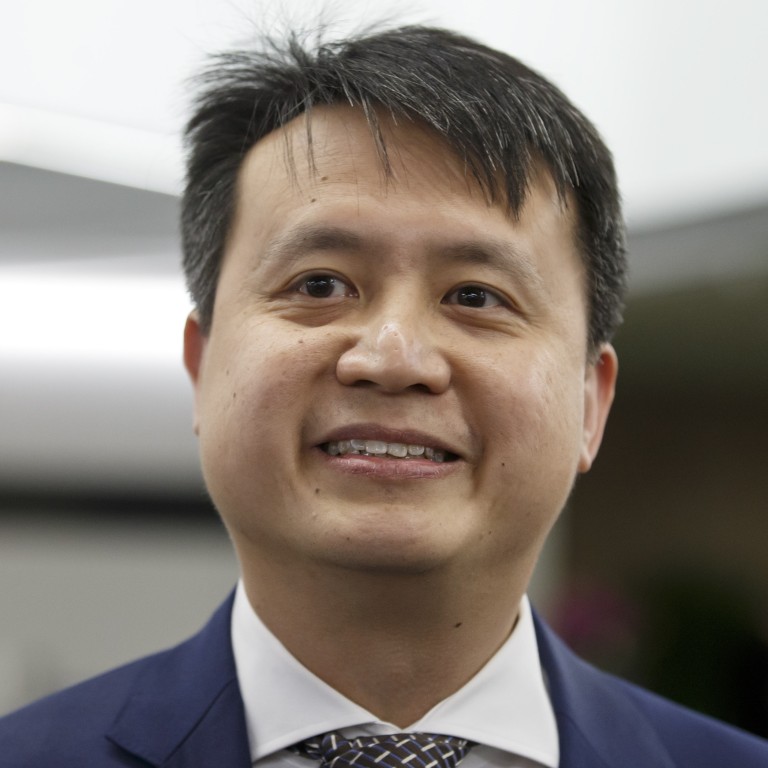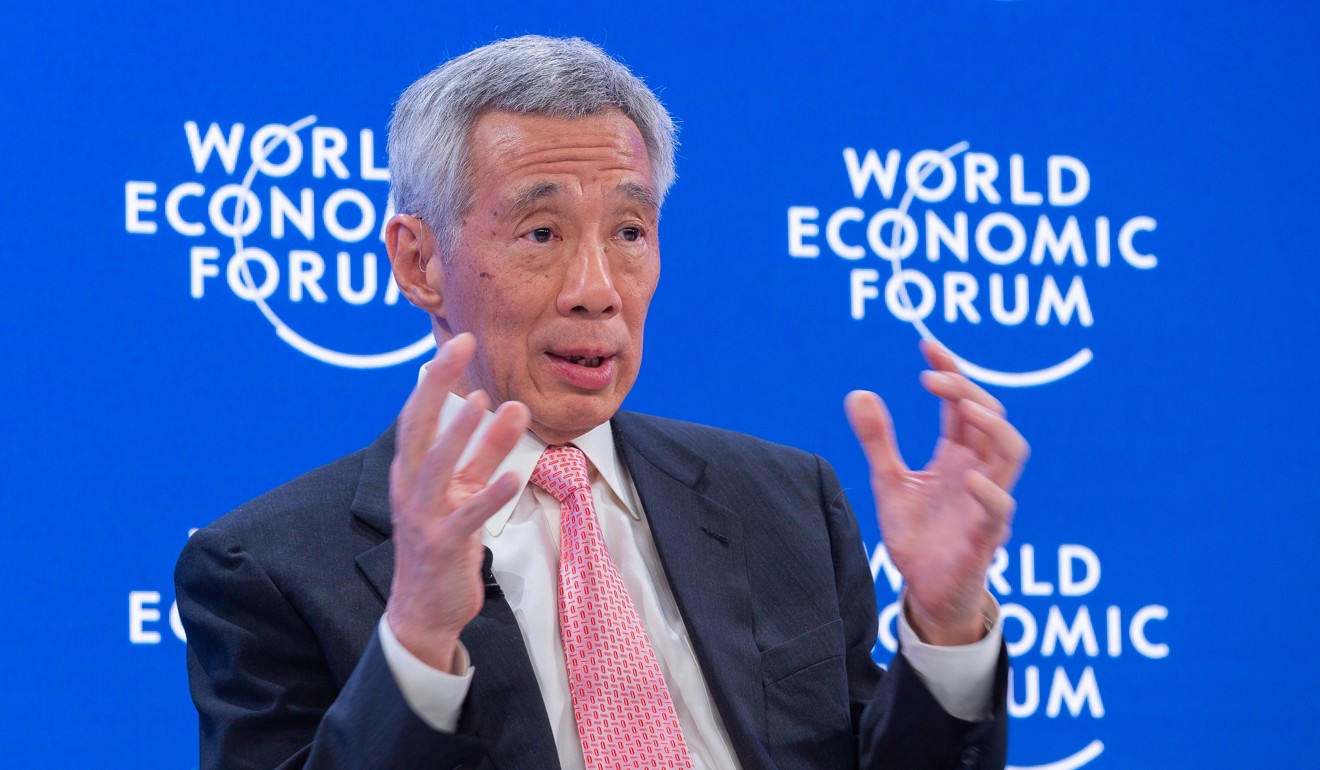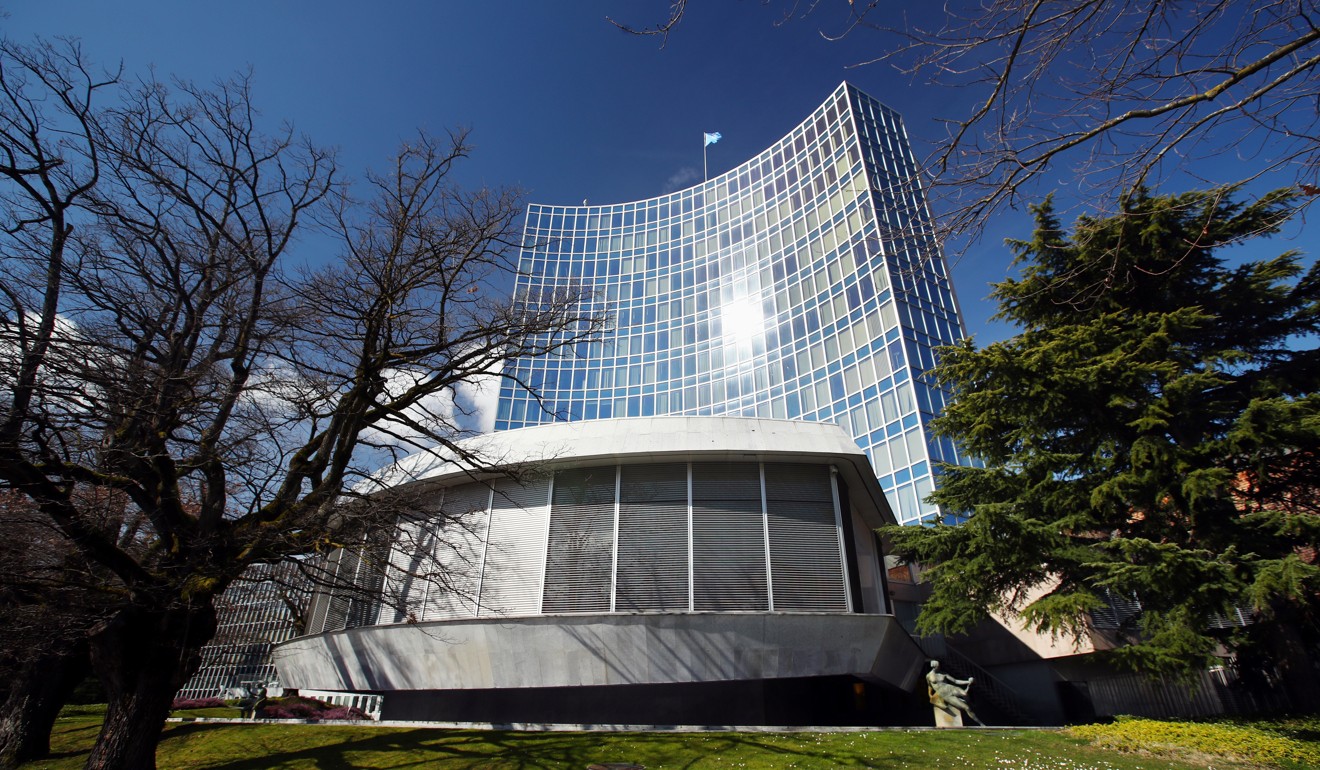
Singapore official will head UN intellectual property agency after beating China’s nominee, Wang Binying
- Singapore’s Daren Tang Heng Shim, backed by United States, to be World Intellectual Property Organisation’s next director general
- Tang beat out China’s nominee after heavy lobbying from America
The United States and its allies have prevailed in a high-stakes diplomatic contest with China over who will head a United Nations agency overseeing intellectual property issues.
On Wednesday, the Geneva-based World Intellectual Property Organisation (Wipo) nominated Singaporean Daren Tang Heng Shim to be its next director general.
Tang heads the intellectual property office of the Singaporean government. His principal rival – and until recently the front runner – was China’s Wang Binying, currently a Wipo deputy director general.
The 193 UN member nations must still vote on Tang’s candidacy, although that has traditionally been considered a formality, with the real challenges taking place during the nomination stage.

Singapore Prime Minister Lee Hsien Loong confirmed Tang’s nomination minutes after the final voting wrapped up.
“This is the first time a Singaporean has been nominated for the leadership position of a UN Agency,” Lee said on his official Facebook page, a platform banned in China. “Well done for flying the Singapore flag high!”
Tang won the final round with 55 votes against Wang’s 28 out of a total 83 eligible votes.
In a statement, US Secretary of State Mike Pompeo congratulated Tang, calling him a strong proponent of IP protection, a “vocal proponent of transparency and institutional integrity” and someone able to forge consensus among Wipo members on difficult issues.
The Chinese embassy in Washington did not immediately respond to a request for comment.
In 2019, China ranked 49th globally on the Intellectual Property Rights Index of 129 nations monitored, up from 52nd in 2018. The US rose two spots to No 12. And Singapore rose one to No 4.
Based solely on her resume, Wang’s chances of clinching the nomination would likely have been greater. Wang joined Wipo in 1992 and has managed large swathes of the 1,500-staff agency. Current and former colleagues give her high marks for her professionalism.
US, China battle over leadership of UN intellectual property agency
Tang, by contrast, has far less management or industry experience.
But politics often trump resumes in UN leadership races. As it became clear in recent weeks that Wang was in pole position, Washington doubled down on working with like-minded governments in Europe, Japan and Taiwan on lobbying allies and otherwise rallying support behind Tang.

For Washington and its allies, the idea of having a Chinese national head an organisation with a global role in safeguarding corporate, scientific and quasi-military intellectual property was akin to the proverbial “putting the fox in charge of the henhouse”, an analogy frequently used by opponents of China’s candidate.
China also lobbied hard for the nomination, insiders say. In recent weeks, Wang has gone on a charm offensive for votes, visiting Asian, African and European capitals. China’s 147 embassies also reportedly offered Chinese investment and jobs in return for votes.
“China’s outreach has been amazing,” said one official close to Wipo.
Intellectual Property: understanding the law that stops people stealing your ideas
While Wang is seen as a personable manager – in contrast to the perceived style of current, controversial director general, Australian Francis Gurry – that in itself presented a potential problem. Some insiders said her accommodating nature would make it difficult to stand up to Beijing should it wish to influence Wipo operations in its favour.
The showdown comes as intellectual property plays a growing role in US-China trade battles and the fight over 5G telecommunications standards escalates.
China topped the 2019 Priority Watch List of countries Washington monitors, Beijing’s 15th annual appearance. The list cites an “urgent need for fundamental structural changes”.
Unlike most UN agencies, almost all of Wipo’s US$800 million budget and US$99 million surplus is funded by industry, giving the agency and its director significant independence from UN member nations.
The funding comes from companies that pay around US$1,000 per claim to safeguard their corporate and quasi-military secrets. Patent and trademark filings are stored on a secure Wipo server while companies decide which national jurisdictions to target.
Intellectual property experts were worried that China could gain access to patent applications before they were published or alter global IP rules in ways that favor its state-led economy and world view.
US officials also were concerned that a Wang victory would give China five top spots at specialised UN agencies – the US has four – expanding its ability to project its worldview.
Is Trump’s focus on Chinese intellectual property theft misguided?
US elected officials, foreign governments and IP experts welcomed the news of Tang’s nomination.
“Some sanity prevails. Not sure what deals the US made!!” said one person close to the UN agency.
“Protecting intellectual property rights is paramount to the success of the US and the future of the global economy,” added the US Senate Foreign Relations Committee on its official Twitter account. “Congratulations to Daren Tang of #Singapore on his successful bid.”
But it remains to be seen how Beijing will react.

One person close to Wipo wondered whether China might break with tradition and challenge Tang’s nomination when the full UN membership votes on his confirmation, given the current era of friction between Washington and Beijing on multiple fronts.
“Do you think China will accept this failure? Or will they call a vote at the General Assembly in May?” the official said.
Critics say the Wipo race has spotlighted the arcane UN appointment system, which is often defined by arm-twisting and favour-trading for votes. They also cite an urgent need for reform at Wipo, amid a legacy of scandals, alleged mismanagement and hounding out of whistle-blowers under Gurry’s leadership.
The Australian has come under fire for establishing satellite Wipo offices in North Korea and Iran stocked with high-end US computers in violation of US export bans, allegedly in return for votes; for paying a US lobbying firm nearly US$200,000 to help avoid detection; and for the alleged routing of a large IT contract to an Australian company run by an acquaintances, according to 2016 congressional testimony.
“Hopefully, Mr. Tang will bring the much-lauded management expertise and accountability of Singaporean bureaucracy to WIPO, which has had so many years of controversy,” said Mark Cohen, director of the law and technology centre at the University of California, Berkeley, in a blog post.
Tang could help diffuse this particular US-China standoff, Cohen said, adding that Singapore’s foreign policy has generally been characterised by “neutrality and balance”.
Purchase the China AI Report 2020 brought to you by SCMP Research and enjoy a 20% discount (original price US$400). This 60-page all new intelligence report gives you first-hand insights and analysis into the latest industry developments and intelligence about China AI. Get exclusive access to our webinars for continuous learning, and interact with China AI executives in live Q&A. Offer valid until 31 March 2020.

